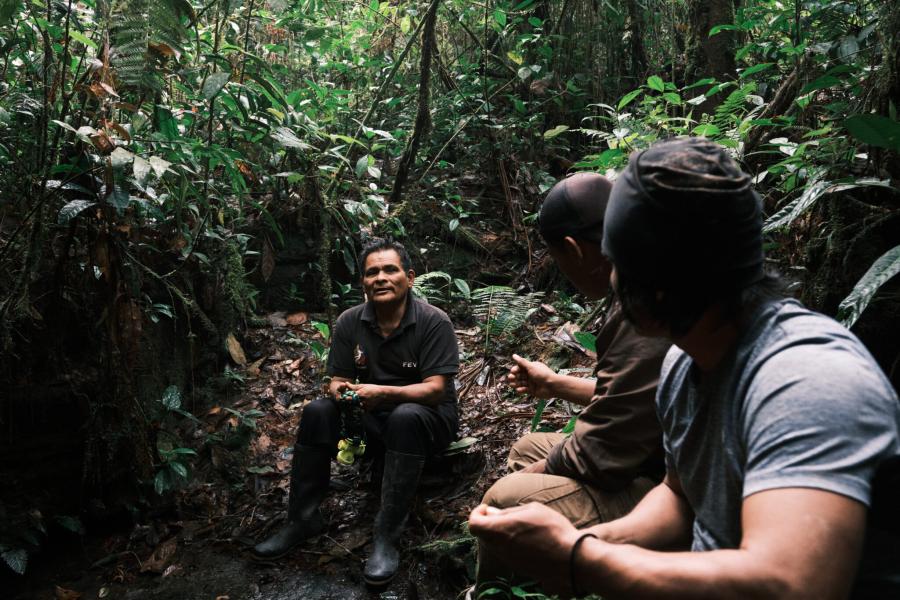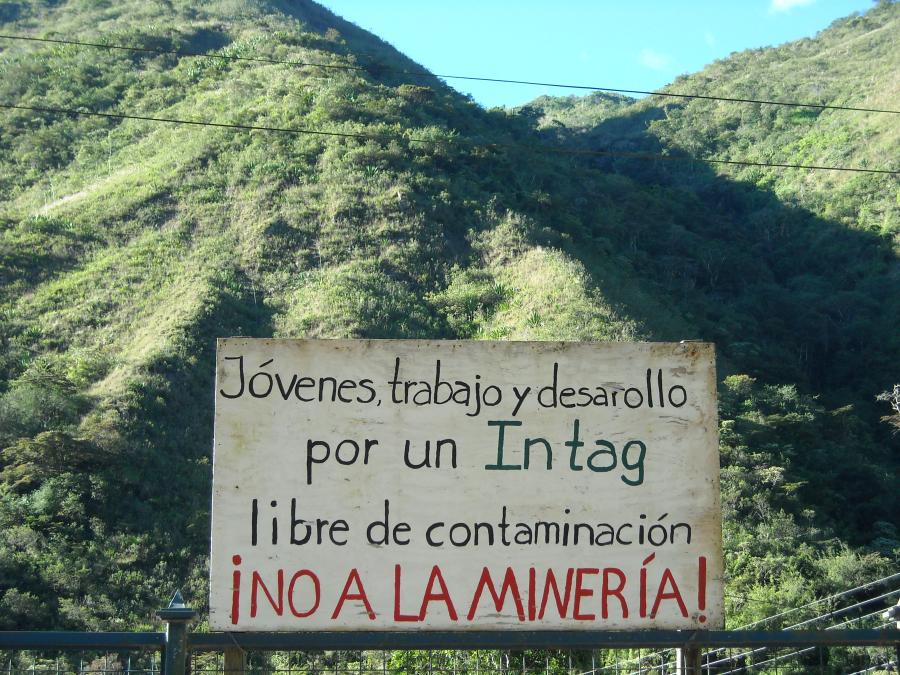
On March 8, 2012 in El Pangui, a small town in the southeastern Amazon region of Ecuador, a group of one thousand Indigenous people began a 400 mile journey north toward the capital of Quito. They walked in protest of mining explorations scheduled to take place on their tribal lands in the Southeastern Amazon. Meeting other Indigenous groups coming from the opposite direction, they reached their destination on March 22, demanding an explanation to the signing of mining exploration contracts signed by the government with Chinese-owned Ecuacorriente.
The marchers were joined by thousands of students and anti-mining protesters in Quito. Some clashes took place between demonstrators and police outside the National Assembly.
In a twist of irony, many of the same Indigenous people who helped elect current President Rafael Correa in 2006, now staunchly oppose his development policies. According to the Confederation of Indigenous Nationalities of Ecuador (CONAIE), the umbrella group that best represents the countries 4-5 million Indigenous people, they are being given a raw deal. “We can’t be beggars sitting on sacks of gold,” Humberto Cholango, CONAIE’s president, told the Associated Press.
The government says Ecuador will benefit from 52 percent of the mining profits, or at least $4.5 billion over its 25-year life. According to Ecuador’s Constitution, the Shuar Tribe would receive 10 percent of this revenue. For the Shuar however, this is not necessarily about money. Their traditional way of life, culture, and spirituality, all rely on a healthy and whole Amazon environment.
"After 40 years of oil drilling, the only things left are destruction of the forest and pollution. That's why we don't want large-scale mining," Mr. Cholango told Associated Press, of the oil drilling in the Northern Ecuadorian jungle. Recently, a federal conviction against Chevron was leveled in relation to the environmental destruction that accompanied this drilling.
This month’s protest also comes with a backdrop of recent criminalization of a peaceful environmental movement. This has entailed government harassment of Ecuadorian Indigenous people and anti-mining activists who have protested as a way to protect land from the current administration’s aggressive development policies.
Pepe Acacho participated in the the march to Quito and said he was undeterred by criminal sabotage and terrorism charges that he faces from leading a 2009 protest.
He was told, "Don't get mixed up in more fights with the government. Think of your family." But he said he cannot abandon a cause that is an entire people's struggle in an interview with Associated Press. He is one of 205 activists who have been charged with sabotage and terrorism during Correa's presidency. Sixteen people still remain to be cleared and none has yet been convicted.
These events, along with the Ecuadorian Constitution and the Correa administration’s policy on development must be considered with respect to the fact that Ecuador has voted for the adoption of Declaration on the Rights of Indigenous Peoples (UNDRIP) by the United Nations in 2007 and has ratified the ILO Convention 169 in 1998.
Article 32 of the Declaration specifically states, that, “Indigenous peoples have the right to determine and develop priorities and strategies for the development or use of their lands or territories and other resources.” Article 32 also goes on to say that, “States shall consult and cooperate in good faith with the indigenous peoples concerned through their own representative institutions in order to obtain their free and informed consent prior to the approval of any project affecting their lands or territories and other resources, particularly in connection with the development, utilization or exploitation of mineral, water or other resources.”
It is clear that the UNDRIP supports Indigenous people in claiming their rights to control their own affairs and the right to ‘free, prior and informed consent.’ This includes development issues taking place on their territories. This includes mining exploration. This includes the Shuar.



